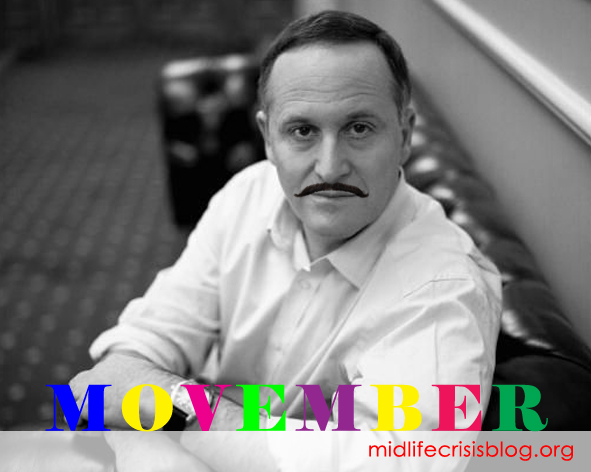Movember Madness
 TV3’s sports host Rod Cheeseman is in. Prime Minister John Key – though he says he’s in favour – won’t participate because he says his wife doesn’t like hairy men. But Bronagh, what’s not to like about our photo-shopped mo-wearing John Key? And we have to ask – would you date this man?
TV3’s sports host Rod Cheeseman is in. Prime Minister John Key – though he says he’s in favour – won’t participate because he says his wife doesn’t like hairy men. But Bronagh, what’s not to like about our photo-shopped mo-wearing John Key? And we have to ask – would you date this man?
We’re talking Movember, the annual, month-long celebration of the moustache, when thousands of men around NZ, Australia and now the world grow a moustache to highlight men’s health issues, specifically prostate cancer and depression.
Mo Bros, supported by their Mo Sistas, start Movember (November 1st) clean shaven and then have the remainder of the month to grow and groom their moustache.
Mo-Growing Online
And this year Herbal Ignite’s general manager Sam Kamani has joined the fray with a mo-growing experiment we’ll track on line.
Says Sam: “I’m quite enjoying my ‘motor-biker mo look’ even though my fiance hates it and is waiting for the days of Movember to finish.”
During Movember, each Mo Bro effectively becomes a walking billboard for men’s health and, via their Mo, raises essential funds and awareness for Movember’s men’s health partners – The Cancer Society and the Mental Health Foundation of New Zealand.
The idea for Movember came about in 2003 when a few mates were having a beer in a small bar in Fitzroy, Melbourne. Inspired by the women’s health movement, it was recognized that men were lacking a way to engage and actively involve themselves in their own health.
During a conversation about fashion and past trends, the idea came up to bring the moustache back for one month, and in doing so, have some fun, raise a small amount of money and hopefully encourage men to talk about their health with each other.
$60m Raised Globally
Since this time, Movember has continued to grow each year, both in terms of participation numbers and funds raised. In its first year, 30 Mo Bros took part in Movember and since 2006, the first year in New Zealand, more than 50,000 people have participated and $4million has been raised for Movember’s Kiwi men’s health partners.
Today, in its sixth consecutive year, Movember now take splace not just in Australasia but also in the US, Canada, UK and Ireland.
To date, Movember has raised AUS$60 million globally for the fight against prostate cancer and depression in men. And, more importantly, as a direct result, male awareness of health issues has improved with Movember helping to spread health messages directly to millions of Mo Bros & Sistas around the world.
Going forward, Movember will continue to work towards helping to change established habits and attitudes and make men aware of the risks they face, thereby increasing early detection, diagnosis and effective treatment.
Herbals For Prostate Health
A range of herbs have been shown to improve prostate health, but non more so than saw palmetto, a herb grown in the US and found in Herbal Quup (pronounced Kew Up) a supplement to help reduce those midnight trips to the bathroom caused by an enlarged prostate.
Quup contains saw palmetto, lycopene from tomatoes, the red ingredient which has found to have a good preventive action against prostate cancer, as well as zinc and selenium, both good for sperm health.
Find out more at Herbal Quup and order today.
 Broadcaster, olive oil producer and P campaigner Paul Holmes has a simple prescription for getting the best out of life after prostate cancer; “Live to the full and laugh a lot.”
Broadcaster, olive oil producer and P campaigner Paul Holmes has a simple prescription for getting the best out of life after prostate cancer; “Live to the full and laugh a lot.”
Reply